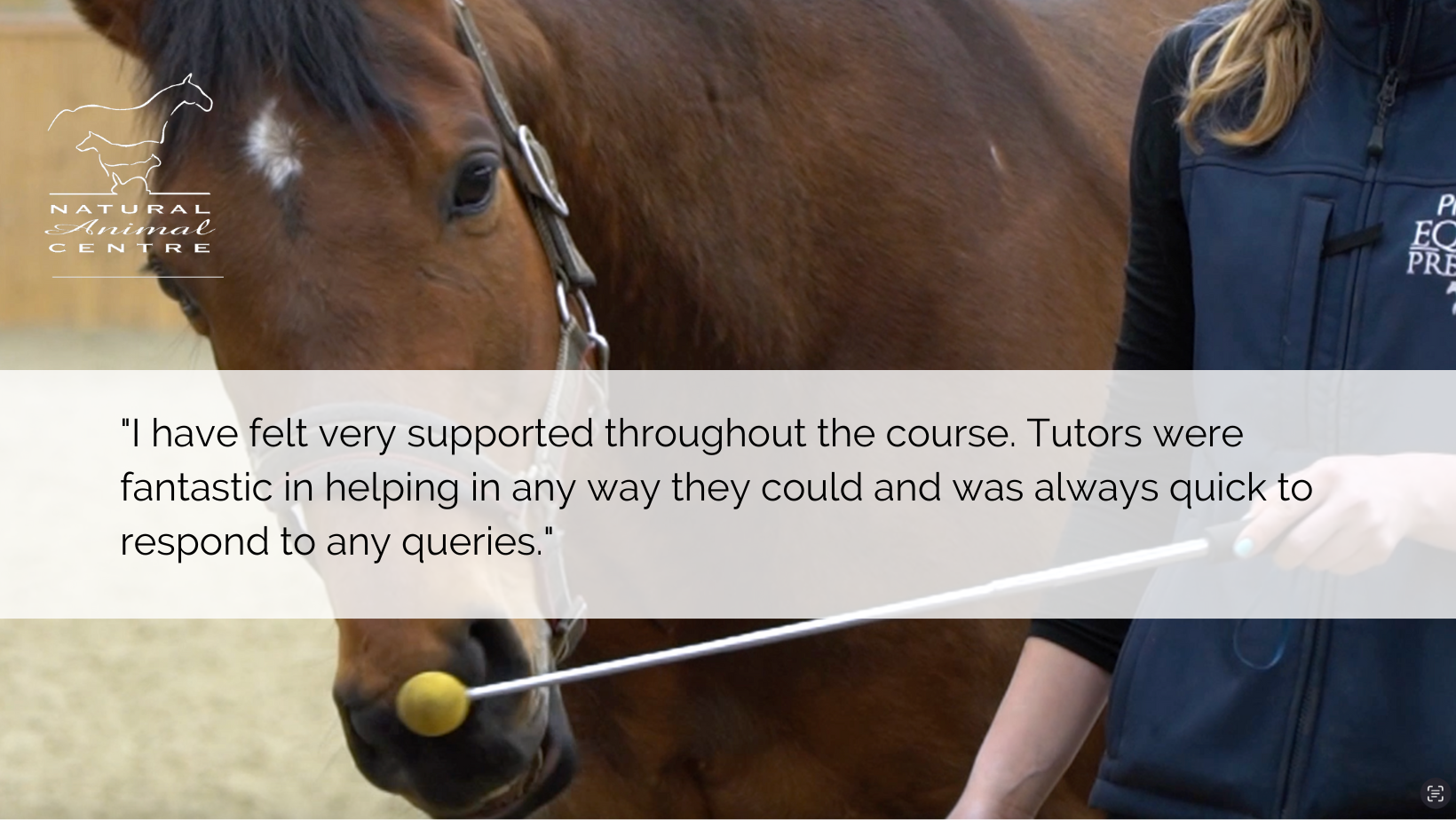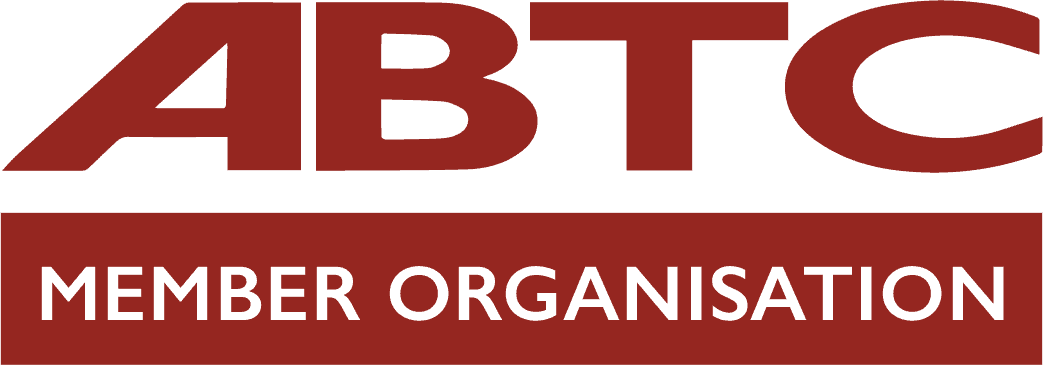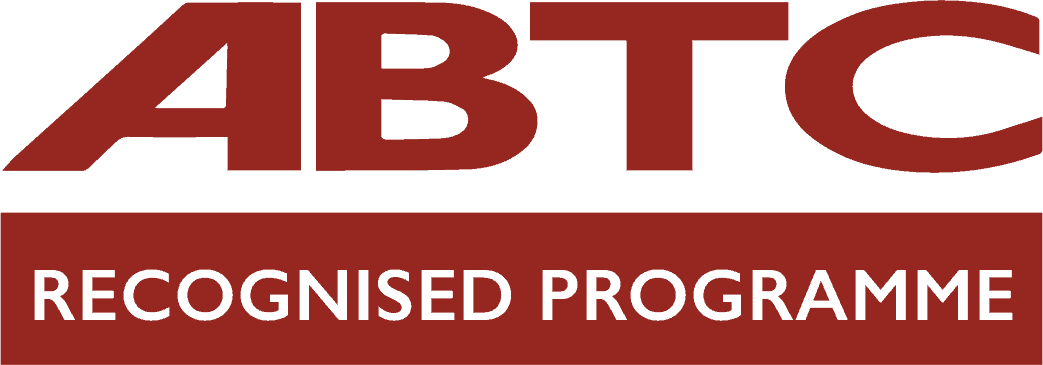BRAND NEW
Diploma in Equine Training and Coaching
Ready to look at an equine career as a horse trainer?
The first pathway, specifically for equines, that meets the Animal Training Instructor (ABTC-ATI) standard set by the UK Animal Behaviour and Training Council!
This course gives you a unique opportunity to gain accreditation with the ABTC as an Animal Training Instructor for Equines. This course is the first of its kind to meet ABTC standards. You will learn how to successfully apply behavioural science and learning theory to the practice of training horses, ponies and other equids by using a variety of techniques and you will learn how to teach owners and handlers how to apply these techniques too. The Diploma is multi-accredited and formally recognised by the ABTC as meeting their ATI Standard and is a pathway for those looking to become a registered ATI for equines on the ABTC register.
Begin your horse training career now!
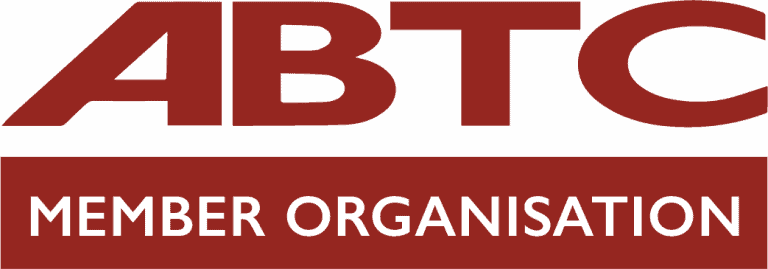
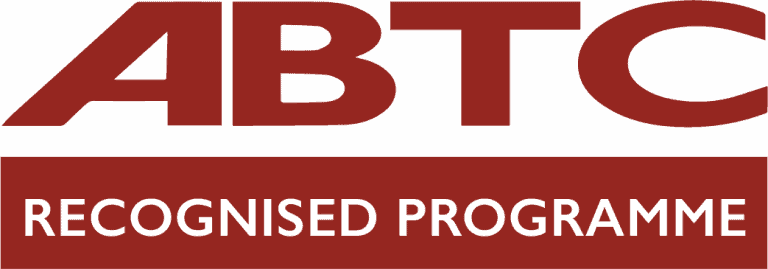
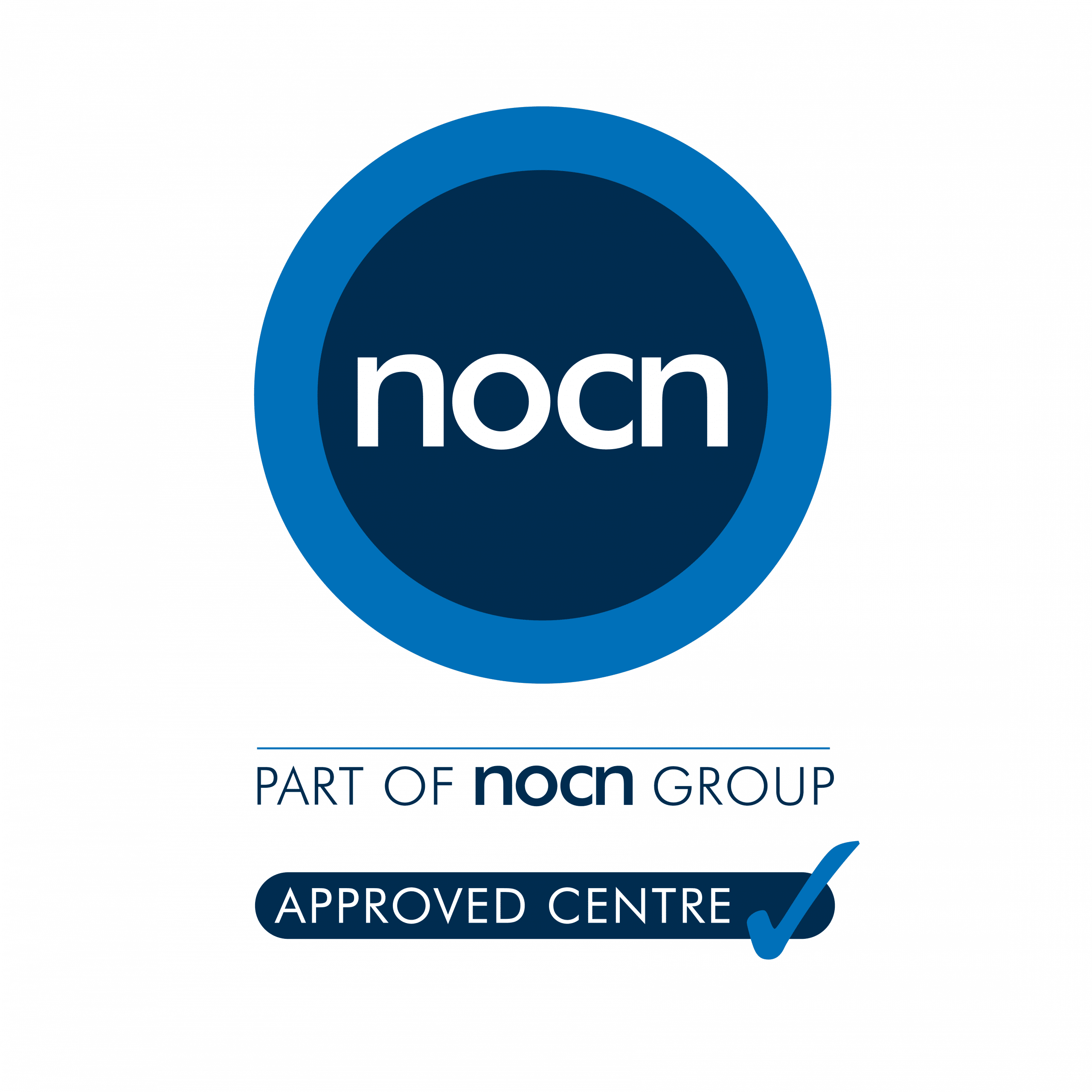
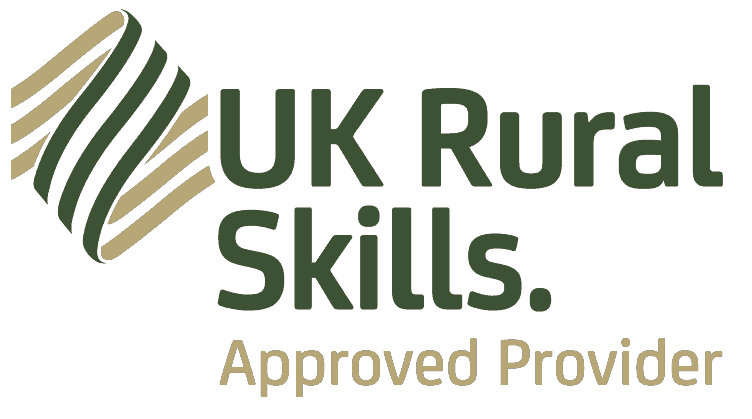
Ready to start your journey to becoming an Equine Training Instructor?
- ABTC Recognised Programme
- NOCN Accredited
- UKRS Accredited
- Study from home
- Pay in instalments
- 1-2-1 coaching on practical training skills provided
- 36 IAABC CEUs
Course opening August 2024
Course starting January 2025
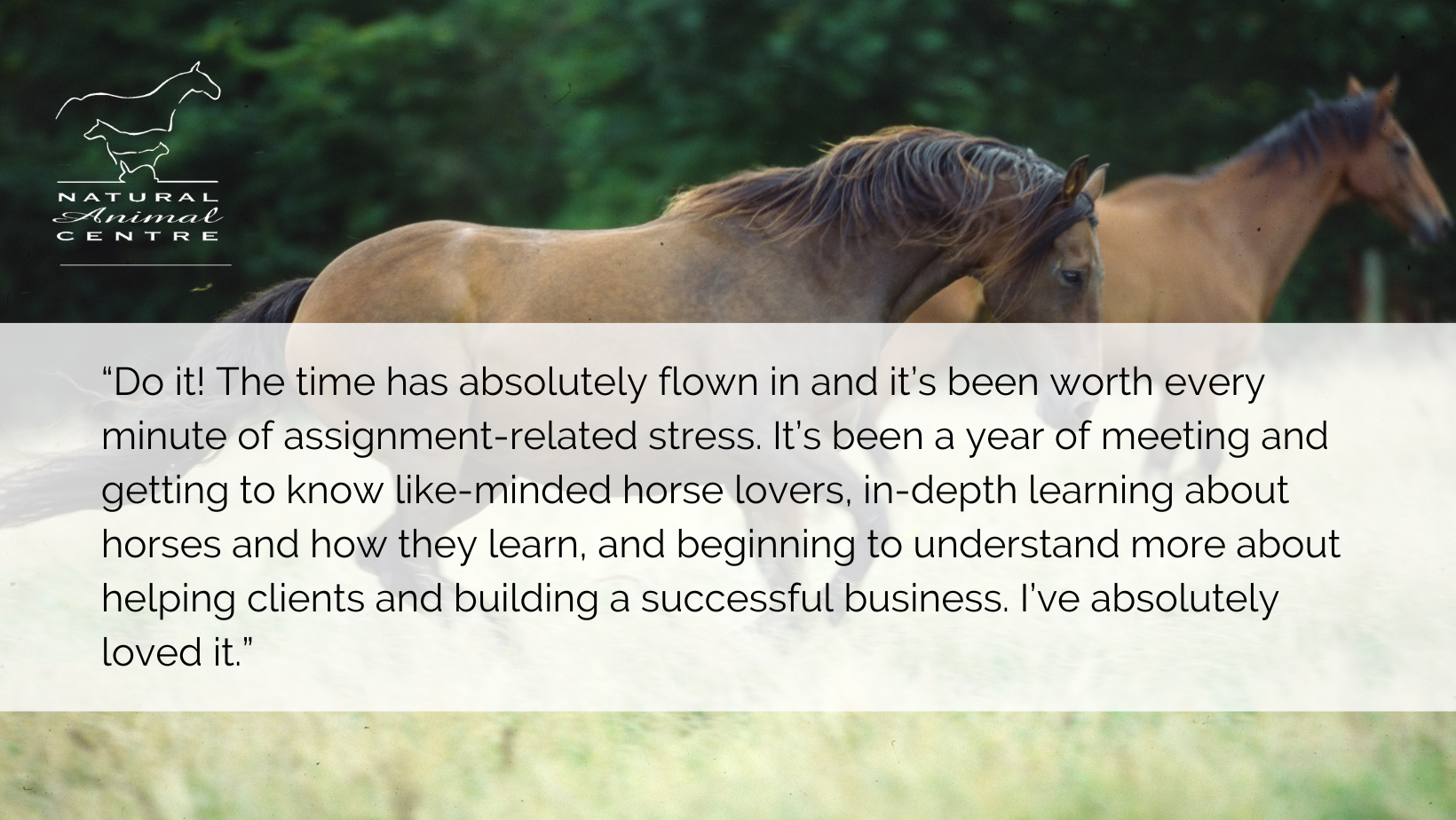
Course Information
The Diploma in Equine Training & Coaching is accredited by National Open College Network as an endorsed programme, accredited by UKRS and is Animal Behaviour and Training Council (ABTC) Recognised for ATI. This means that on successful completion of the course, you will be eligible to join the ABTC register as an Equine ATI – the first of its kind!
This distance learning course provides you with the opportunity to become a certified horse trainer by learning how to successfully apply behavioural science and learning theory to the practice of horse training using a variety of techniques and is recognised as meeting the criteria from the ABTC ATI Standard. It is a pathway for those looking to become a registered ATI for equines on the ABTC register.
Plus, gain 36 CPD CEUs for the IAABC on successful completion of the course.
After completing the course, you will be able to apply to join the ABTC register. Following a successful assessment of the ATI performance criteria, you will be able to join the ABTC Register as a fully fledged ATI.
Start your horse trainer career today!
Course Details
Full Enrolment
If you’re looking to take the course and gain the Diploma certification and eligibility to join the ABTC ATI register, the full enrolment place is for you. You can study alongside your fellow students with us over 10 months and complete the assignments and practical coaching to complete the course and gain the Diploma. On completion of the course, you will then be eligible to join the ABTC register as an Animal Training Instructor for equines.
The course is designed to be studied around work and life commitments and therefore, is suitable for anyone looking to study alongside a job or a busy life.
Auditor Places
There are a limited number of auditor places available in each cohort. These places allow individuals to join the course and take part in all learning aspects (including receiving 1-2-1 coaching on practical training skills) without taking the assignments and gaining the diploma certification.
This removes any stress of deadlines and allows learners to study largely at their own pace whilst being able to join in on the live discussion calls to gain the most from not only the content, but also the tutors and fellow students.
If you’re interested in taking the course but don’t want to take on the full financial commitment of the Diploma or you’d like to spread the cost, then an auditor space is for you. This place would suit you, if you would like to develop your knowledge and skills for use with your own horses without gaining the certification.
Auditors pay a discounted fee and are not able to submit any formal assignments nor gain the certification. However, there is an option for auditors that wish to gain the Diploma whereby you can join us for a second year, pay the remaining fee and complete the assignments.
Please apply below for more information.
You must have at least one year’s experience working in the equine industry or owning/caring for horses full-time and/or give proof of a relevant level 3 equivalent qualification.
The relevant level 3 qualification may be, for example, Science, Psychology or similar at A-Level. A level 3 qualification in a relevant subject will be ideal as, having previously studied to level 3, you are therefore likely to get the most out of the level 4 equivalent course. If you are coming from the equine industry without relevant qualifications, we are happy to welcome you.
You must have access to at least three horses for assignment work. If you have any queries about this, please get in touch with us at [email protected].
You will be assessed through a variety of methods, with 8 assignments throughout the course duration. Assessment methods include but are not limited to:
– Written Reports
– Video Submissions
All individual assignments must receive a pass mark in order to complete the course.
Academic Level: Level 4 equivalent
Number of Modules: 4
Total Hours: 525 Learning Hours
Course Duration: 1 Year Course
This course is multi-accredited but is not an Ofqual-regulated qualification, and is not listed on the Register of Regulated Qualifications. The course has been accredited by the Ofqual-regulated awarding body NOCN as an endorsed programme which means it has undergone rigorous quality assurance testing to ensure the highest standard of educational provision for learners.
Course Syllabus
Module 1
- Evolution
- Domestication
- Safety in numbers
- Communication methods
- Effect of management on behaviour
- Social structure
- Tinbergen's four questions
- The four f's
- Selfish gene theory
- Resource holding potential
Module 2
- Shaping ladder
- Creating training plans
- Factors that influence training progress
- Setting up horses mentally + physically for success
- The other 23 hours in a day
- Preparedness
- Operant Conditioning
- Classical Conditioning
- Reinforcement Schedules
- Advanced learning theory
- Training techniques and much more...
Module 3
- Assessing equines for training
- Horse-owner relationship
- Owner's needs and goals
- Horse's needs
- Behavioural priorities
- Management as part of the solution
- Health and Safety
- Training equipment
Module 4
- Duty of care
- Understanding owner motivation
- Transactional Analysis introduction
- Client relationships
- Recognising your own limitations
- Contraindications
- Building rapport
- Business and professionalism
Payment Options
Course Price: £3,250+VAT
Payment plans and auditor positions are available – don’t miss out.
You can now apply for a place on the course. Please submit your application below and if you have any questions, please email [email protected].
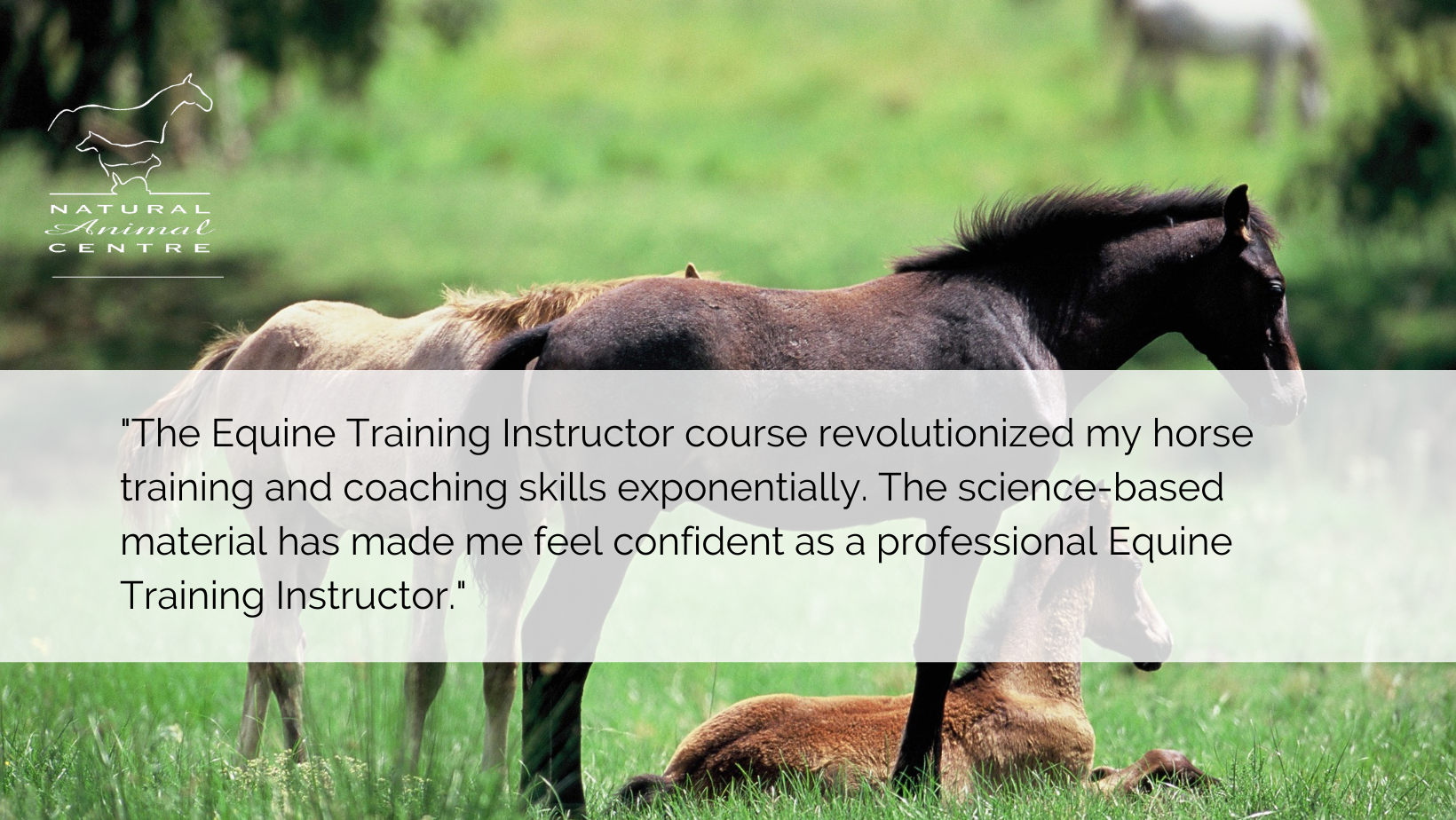
Want to join our waiting list?
Send an enquiry below and we'll get in touch to find out of the course is right for you.
A deposit of £390 including VAT will be required to secure your place on the course, should your application be successful. 50% of this deposit is non-refundable to cover administration costs.
All courses are subject to our Terms and Conditions.
Course FAQs
Looking to learn more about our Equine Training Instructor Pathway? Here are the answers to some frequently asked questions we receive.
If you have any further questions about the course, please feel free to get in touch with us by going to the contact us page and we will be happy to help.
What are the entry requirements?
All entry requirements can be found on the course’s main page on our website. For the Equine Training Instructor Pathway there is no need to have a degree, just a minimum of one year’s experience with horses and/or a UK level 3 equivalent education (or international equivalent).
An example of a level 3 qualification could be an A-level in Psychology or it could also be a level 3 diploma in equine management from a land-based college. A level 3 qualification in a relevant subject will be ideal as, having previously studied to level 3, you are therefore likely to get the most out of the level 4 equivalent course. If you are coming from the equine industry without relevant qualifications, we are happy to welcome you.
How many hours do I need to dedicate to the course weekly?
The total contact hours on the course is 525. The total recommended hours is 750, the additional 225 hours includes any further reading or study.. Contact hours include everything from watching live lectures, studying the course content, participation in discussion groups, reading recommended text books and resources, and the hours spent preparing and writing your assessments.
Each module varies in length with some being longer than others, so an exact number of how many hours a week study is required will vary across the course, and everyone has different factors that will influence the amount of hours they need to dedicate such as prior learning and varying daily routines, but it averages out at approximately 16.5 hours a week.
The entry requirements say I need access to three horses. Why is this, and how much do I need to do with them?
Both module 3 and module 4 require you to carry out practical training with horses and to coach owners in reinforcement-based training approaches. Module 3 requires you to train three horses each, in a separate task (you will have the opportunity to choose from a set list of behaviours) and module 4 will require you to submit three separate ten minute coaching videos of you teaching owners or handlers, this can either be with their own horses or a horse that you have access to. The tasks will not be overly complex, and it won’t include strenuous exercise, they are purely to assess your training and coaching skills against the course criteria.
Will I be able to ask the tutor(s) specific questions or ask for specific help?
Of course! We want to make sure that you feel as supported as possible throughout the course. Our course includes a forum page in which you can post any questions/queries and the tutors will give you advice, including allowing you to talk things through with fellow students.
There will also be weekly discussion group sessions on Zoom that will give you the opportunity to ask any questions ‘face-to-face’ and have live discussions with the tutors and your fellow classmates, having had the opportunity to read and digest content discussed within the session, in the weeks prior.
If you have any particular needs that might impact your learning on the course, please let us know during enrolment so that we can discuss how best to support you through the course. Access arrangements can be set up for students where necessary. This may include reasonable adjustments to assignments and deadlines.
What if I don’t pass an assessment? Will I be given the chance to improve and try again?
The NAC aims to provide an outstanding level of service wherever possible to our learners and in line with that we have an appeals policy. Students must submit sufficient evidence that an appeal is justified.
Your assignments and course work are marked internally, and they are externally verified, as well as being moderated by the ABTC; in addition students will have access to the marking framework for each assignment when it is given so you will have an idea of the level of work you need to achieve to reach each grade.
How flexible is the course structure: can I work through the assessments at a flexible pace or are there required deadlines?
The course is eight months long, during which time all work and assignments will be completed. In order to further support the growth of our students, we provide access to the learning platform for up to twelve months after the start date of the course (i.e. a further 4 months after the course has finished) to allow students to go back over course content, read assignment feedback, notes, etc.
In terms of assignments, there are deadlines. Each module is opened fully as you work through the course so there is opportunity to read ahead if you wish. For example, all of module one will be open at the start and you may read through all the way to the end.
There will be weekly discussion group sessions, before which you will be asked to have read up to at least a certain point in the module so that you can engage in the discussion and everyone can move through the course as a cohort. Similarly, there will be some lectures that relate to assignment topics. Certain topics may require further study and support throughout this horse training course and therefore we include live lectures and recorded lectures throughout the course content to enhance your studies.
You can submit your module assignment early if you wish, but we recommend waiting until the cohort is at that point in the course and all the content up to that point has been covered, to give you the best chance of achieving good grades..
For example, once module 2 has opened you can read through the whole module’s content and submit your assignments ahead of the deadline if you wish, but that won’t allow you to progress past module 2 until the course timeline aligns with the start of module 3. Equally, you can request extensions to deadlines under certain circumstances; however if you miss a deadline without having agreed an extension you will not have the opportunity to submit your work for grading.
See you on the inside!
